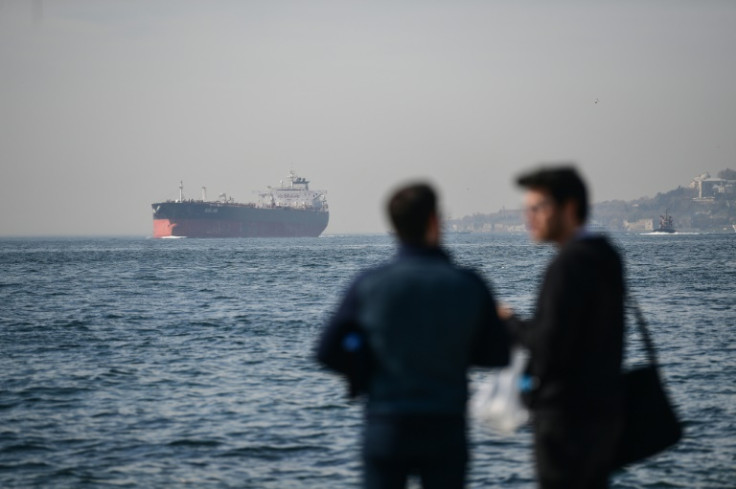Turkey Ends Tanker Dispute Linked To Russian Price Cap

Turkey said Tuesday it has cleared up a dispute linked to a Western price cap on Russian crude that had stalled the passage of tankers through the Bosphorus and Dardanelle straits.
A queue of around 20 oil ships had been waiting to sail through the straits for much of the past week in a spat over Turkey's demand for physical proof of insurance.
The European Union and the Group of Seven leading industrialised nations agreed earlier this month to block Western firms from servicing ships that sell Russian oil for more than $60 a barrel.
The decision was part of a US-led drive to punish Russia for its war on Ukraine by stripping away its main source of income while avoiding major disruptions to the global crude market.
The plan hit a snag when Turkey voiced alarm over the possibility of uninsured ships passing through the Bosphorus -- a strait running through the heart of the 16-million-strong city of Istanbul.
Turkish coast guards began to demand letters proving ships had so-called "protection and indemnity" insurance against spills and other accidents.
Western insurance companies balked at the demand because it made them liable for the possible breach of the new sanctions.
European diplomats have been meeting with insurers and Turkish officials in a bid to agree on a compromise text that could suit all parties.
Turkey's transport ministry said tankers have now started to produce a "confirmation letter" that guaranteed their passage from Russian ports to world markets.
"There are no tankers loaded with crude waiting for passage," the ministry said in a statement.
The bottleneck in the Turkish straits had made little impact on the global oil market because most Western countries no longer purchase Russian crude.
An analysis by Bloomberg showed that Bulgaria was the only European country to have imported Russian oil this month.
It showed most of the Russian tankers now headed for Asian markets through the Suez Canal.
© Copyright AFP 2025. All rights reserved.





















